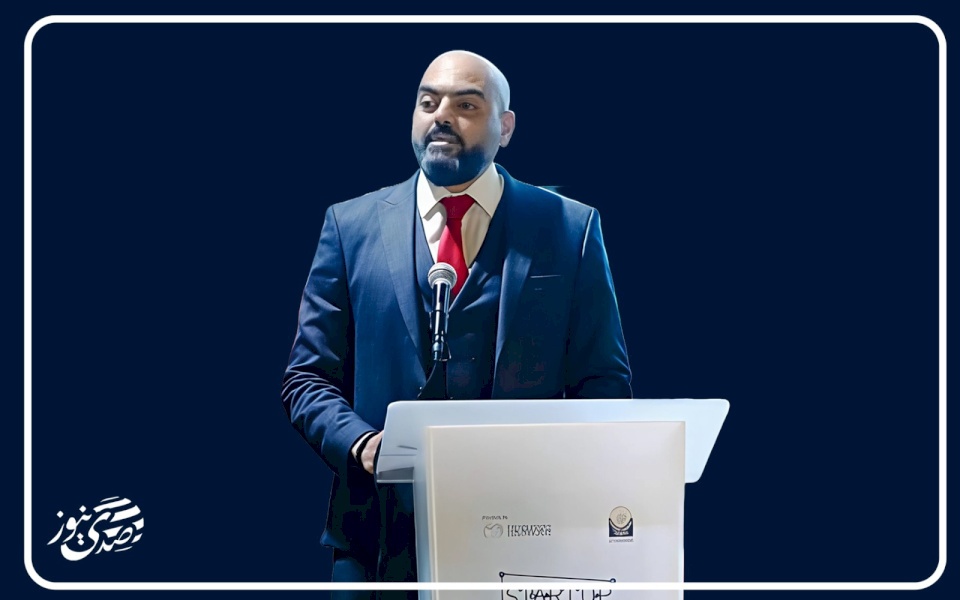
Jurassic Park
Just as Hollywood has deceived us for decades with images of giant dinosaurs, with their thick skins and thunderous roars, the reality being drawn in the West Bank undergoes a similar production process, but its tools are not special effects or computer programs, rather an electric fence, digital gates, and an apartheid wall. In dinosaur films, a camera and visual effects are enough to convince the viewer that what they see is the truth, even if it is far from scientific discoveries.
In the West Bank, political statements, colored maps, and "security" reports are sufficient to market to the world that the barriers and walls are "temporary measures" or that they are a "security necessity," while their reality is that they are a meticulously designed scene to isolate the land from its owners and reshape geography and memory together.
In the town of Sinjl, I saw the scene as if it were a shot from a fake documentary: an electric fence encircling farmers' lands, poles cutting through the horizon, shiny wires under a scorching sun, and cameras monitoring every movement, as if we were in a primitive world where a strange beast chases its prey. But here, the beast is not an extinct dinosaur but a complete system controlling the details of daily life, from the movement of farmers to the timing of opening the doors of their villages.
The scene in Qalqilya is even more constricted, a city surrounded by the wall on all sides, its only entrance resembling a closed studio gate, opening and closing at a signal from the "director." From the outside, it seems like a "crossing regulation" system, but from the inside, it is collective imprisonment, with no difference between night and day except for the color of the sky above the wall.
The occupation has not only penned the script of walls and gates, but has introduced additional actors to the scene: the settlers. These enter Palestinian villages and cities daily without permission, as if they are moving freely in an unguarded film set, leaving behind scenes of burning, killing, and destruction of property, then departing without accountability. In many villages, the smoke of burning homes is the most present "visual effect," and the sound of gunfire is the "soundtrack" accompanying the forced film.
Around 900 gates spread along the wall work like precisely prepared cinematic passages, opening at specific hours for Palestinians, while remaining open around the clock for settlers. They cross them to enter any village or road they want, as if the camera rotates only in their favor, while the broadcast is cut off when it comes to the right of Palestinians to access their land or protect their homes.
As for the apartheid wall, it is not just a concrete structure, but a "huge decor" that redraws the Palestinian scene to make it seem like the story is different: "security" here and "borders" there, while the truth is that the land is eroding, settlements are expanding, and maps are redrawn for the benefit of one party. In films, scenes that do not fit the narrative are deleted; in the West Bank, life itself is deleted from many scenes when settlers invade fields, break house doors, or attack passersby in broad daylight.
The difference between the film "Jurassic Park" and what is happening in the West Bank is that the former sells fantasy as truth, while the latter sells occupation as a "security necessity." In both cases, the audience sees what the director wants them to see, but in the case of the West Bank, the victims themselves are trapped within the scene, unable to leave the hall or turn off the screen.
Perhaps filmmakers can be forgiven if they add a roar to the dinosaur that no one has heard or make it larger than it was, as this is art and entertainment. But those who write a script involving walls, wires, gates, and settlers storming villages and cities daily to burn, kill, and destroy cannot be forgiven, because these are not cinematic scenes, but a life forced to be part of a harsh, unending film.

Huckabee's Statements Reveal the Falsehood of Trump's Peace and Reinforce Religious Confli...

Licensed Occupation by Law

Whoever Does Not Plant Hope, Plants Departure...

Between "Here is Jerusalem" and "Here is Gaza" ... The Voice of a Nation and the Steadfast...

While some count the boos, Palestinians count their martyrs.. Paradoxes of the internation...

When the Palestinian Issue is Reduced to Gaza Management

Legally Licensed Occupation

